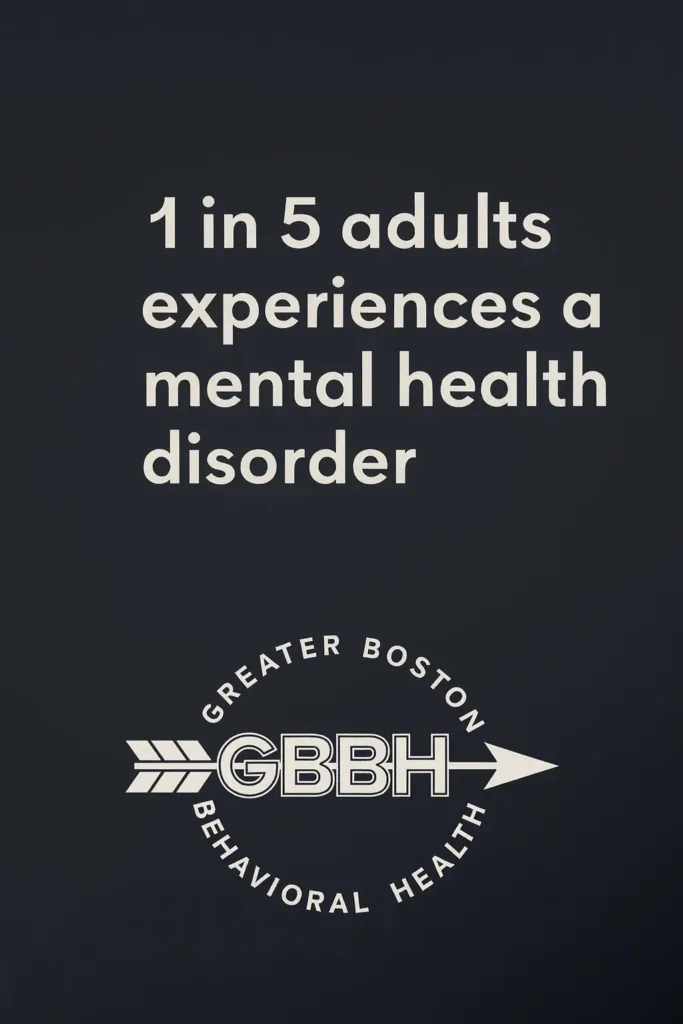I didn’t plan to relapse. No one does. It wasn’t dramatic or loud—it was quiet. Sneaky. Just one bad moment I convinced myself was harmless. But that moment unraveled three months of sobriety.
I was crushed. Embarrassed. Floating in the kind of shame that makes you silent. But one call—and the CBT work that followed—brought me back. That call didn’t fix everything, but it saved everything. And if you’re reading this in the middle of your own spiral, maybe it can save something for you too.
If you’re looking for a place to start, Greater Boston Behavioral Health’s CBT program was the first door I walked through after relapse. It’s still open—and it’s still helping.
The Silence After Relapse Is Louder Than People Realize
I didn’t even cry at first. I didn’t feel much of anything. Just… empty. Then came the voices—internal ones that didn’t yell, but whispered the worst things:
- You always mess this up.
- You’re wasting people’s time.
- You should just disappear.
That silence—the space where I could have reached out but didn’t—nearly undid me. It convinced me I didn’t deserve a second (third, tenth) chance. It told me I was the problem. And that no one wanted to hear from me again.
What Finally Made Me Pick Up the Phone
Honestly? I don’t know. It wasn’t a burst of strength. More like hitting a wall. I was tired of hiding. Tired of pretending I could handle it alone.
I called someone I trusted. My voice cracked as soon as they answered. I didn’t even say “hi”—just blurted out, “I slipped.” I braced for disappointment. But all they said was:
“I’m so glad you called.”
That broke me. In the best way.
Relapse Isn’t the End—But It Can Feel Like It
If you’ve ever relapsed after some real time under your belt, you know how brutal it feels. This wasn’t day two or week one. I had ninety days. Enough time to feel proud, to feel clear. Enough time for other people to start believing in me again.
Which made the fall even harder.
But here’s what I wish someone had told me:
Relapse doesn’t erase the work you’ve done. It doesn’t mean you’re back at zero. It just means something still needs tending. Something got missed, or buried, or overwhelmed. That’s not failure—it’s information. CBT helped me decode it.
How CBT Helped Me Come Back With Less Shame
I had done CBT before, technically. But I hadn’t let it land. I went through the motions—filled out the thought logs, repeated the mantras, nodded at the coping tools. But I was still treating recovery like a checklist.
After relapse, I showed up raw. No performances. No pretending to be a model client. Just a shaky, shame-soaked version of myself who didn’t want to fall through the cracks again.
And that’s when CBT started working.
It didn’t “save” me like some dramatic intervention. It equipped me. Slowly. Gently. Day by day, CBT gave me the tools to name my triggers, challenge my distorted thoughts, and build an emotional buffer between pain and reaction.
What CBT Looked Like—This Time Around
I remember one session where I told my therapist, “I feel like a fraud.” And instead of trying to convince me otherwise, she asked:
“What’s the evidence for that thought?”
And I had to pause. Because yeah, I had relapsed. But I had also picked up the phone. I had shown up to therapy. I had taken accountability. That’s not fraud energy. That’s someone trying.
CBT helped me slow down enough to see the gap between my feelings and the facts. Between the shame story in my head and the actual choices I was making.
It Wasn’t My First Recovery Attempt—But It Was the First Time I Felt Like I Belonged
Relapse can make you feel like a stranger to your own progress. Like you’re no longer welcome in the recovery community. But walking into a CBT group at Greater Boston Behavioral Health reminded me: there’s no such thing as too late here.
Everyone in that room had slipped. Everyone had a different day count. But the thing we had in common? We came back.
CBT didn’t just teach me coping tools. It reminded me how to stay connected to the part of me that wanted to live better. And that part got louder than the shame.
A New Definition of Progress
Recovery, for me now, isn’t about perfection. It’s not even about long streaks. It’s about repairing faster. It’s about recognizing the moments that matter—the ones where I choose connection over avoidance. Accountability over hiding.
That phone call after my relapse? That was progress.
Booking a CBT appointment instead of spiraling in isolation? Progress.
Saying “I’m struggling” out loud, even when I’m supposed to be the one who’s “doing well”? That’s progress, too.
If You’re On the Edge of Giving Up, Try This Instead
Pick up the phone. Not tomorrow. Not after one more self-destructive spiral. Now. Even if all you can say is, “I don’t know what to do.”
Then show up—imperfectly, inconsistently, messily—to something like CBT. Let it hold you until you can hold yourself again.
Because CBT isn’t about being perfect—it’s about being willing. Willing to look at your thoughts. Willing to question your pain. Willing to believe that your brain, no matter how loud the lies get, can still learn something new.
FAQs About CBT After Relapse
What is CBT, and how does it help after relapse?
CBT, or Cognitive Behavioral Therapy, is a structured form of talk therapy that helps you understand how your thoughts affect your feelings and behaviors. After relapse, CBT can help you untangle the shame, identify the thought patterns that led to using, and build healthier ways to respond to stress, cravings, or self-doubt.
Can I do CBT if I’ve relapsed multiple times?
Yes. CBT is not about how many times you’ve stumbled—it’s about helping you respond differently when you do. Many people benefit from CBT even after multiple relapses because it offers concrete, actionable tools that build emotional resilience and mental flexibility.
How is CBT different from just talking to a sponsor or friend?
While peer support is essential, CBT gives you a structured way to challenge harmful thought loops. Sponsors can support you emotionally; CBT helps you understand and change the internal patterns that might be setting you up to relapse.
Does CBT work if I don’t believe in it right away?
You don’t have to believe in CBT to benefit from it. You just need to try it honestly. The process works through repetition and reflection, not blind faith. In fact, many people start skeptical and still find relief and change through the work.
Where can I get CBT support in Boston, Massachusetts?
Greater Boston Behavioral Health offers individual and group CBT programs tailored for people in recovery, including those who have relapsed. Whether you’re just getting back on track or exploring therapy for the first time, their clinicians meet you where you are—with no judgment.
Ready to talk?
You don’t have to explain it perfectly. You don’t have to prove you’re “ready.” Just reach out.
Call (888) 450-3097 or visit our CBT therapy page to learn more about CBT services in Boston, Massachusetts. And for those in Needham, Waltham, Newton, or West Roxbury, we have nearby locations to make care accessible. One phone call might not fix everything. But it might save everything.


